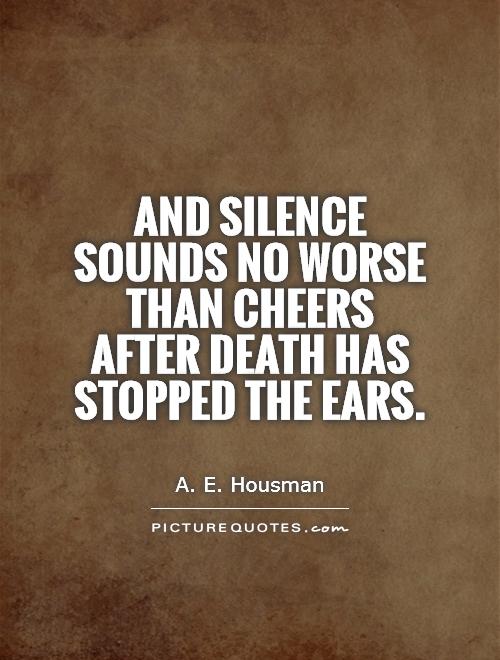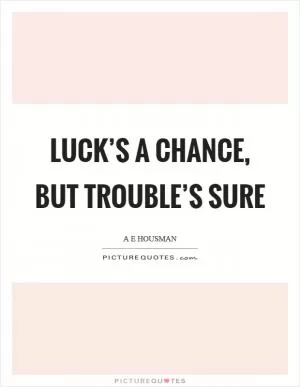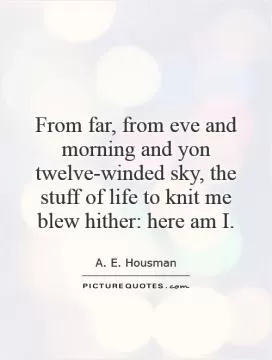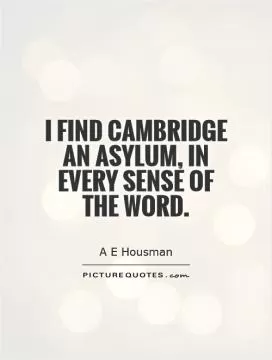And silence sounds no worse than cheers after death has stopped the ears

And silence sounds no worse than cheers after death has stopped the ears
The line "And silence sounds no worse than cheers after death has stopped the ears" is a poignant reflection on the inevitability of death and the peace that can come with it. This sentiment is often found in the works of A.E. Housman, a renowned English poet known for his melancholic and introspective poetry.Housman's poetry often explores themes of mortality, loss, and the passage of time. In many of his works, he grapples with the idea of death as a natural part of life, and the acceptance of this fact as a way to find solace and peace. The line in question captures this sentiment perfectly, suggesting that in death, the absence of noise and chaos can be a welcome relief.
The idea that silence is not worse than cheers after death has stopped the ears speaks to the idea that in death, there is a release from the struggles and pains of life. The noise and chaos of the world can be overwhelming, and in death, there is a sense of quiet and stillness that can be comforting. The cheers of the living may no longer matter once one has passed on, as the individual is no longer able to hear them.
Housman's poetry often reflects a sense of resignation and acceptance of the inevitability of death. He does not shy away from the darker aspects of life, but instead embraces them as a natural part of the human experience. This acceptance of death as a part of life is a recurring theme in his work, and is reflected in the line "And silence sounds no worse than cheers after death has stopped the ears."
Overall, the line captures the essence of Housman's poetry, which is characterized by its introspective and contemplative nature. It speaks to the idea that in death, there can be a sense of peace and quiet that is not found in life, and that this can be a source of comfort and solace.












 Friendship Quotes
Friendship Quotes Love Quotes
Love Quotes Life Quotes
Life Quotes Funny Quotes
Funny Quotes Motivational Quotes
Motivational Quotes Inspirational Quotes
Inspirational Quotes